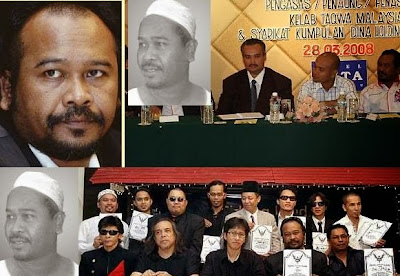PRESS STATEMENT
12 NOVEMBER 2013
BERNAS To Go Private: Greed Gone Wild
Introduction
1. Getting de-listed from being the darlings of the stock exchange to being privately owned seems somewhat of a trend recently. Blackberry was a recent example where it had to be de-listed to go private after losing almost USD 70 billion from its original valuation of USD 80 billion five years ago. The challenging business environment has made it difficult for listed companies to continue offering stellar returns to shareholders and going private offers the management an opportunity to really focus on growing the business by focusing on its long term aims.
2. In Malaysia, de-listing and taking a company private was due to an entirely different reason, greed.
3. BERNAS does not suffer from the same problem as Blackberry. BERNAS' share price is on an uptrend and had trebled over the last five years. It is an example of a stable company with consistent annual nett profits averaging RM 135 million a year since 2006 with revenues that have risen steadily from RM 2.1 billion in 2006 to RM 3.6 billion in 2012.
4. BERNAS is indeed a very attractive acquisition target to any ultra wealthy private individuals. Combine these healthy profit performance with its monopoly over rice import AP's and a growing population with a staple diet of rice would cause these same individuals salivating at the prospects of owning this 'cash cow' company.
Original Intent
5. Let us be reminded that the original intent to privatise BERNAS was not only to ensure the fulfillment of the nation's growing rice requirement (through management of the National Stockpile and the Padi Price Subsidy Scheme) but also to ensure that bumiputera farmers, rice distributors and the workers at BERNAS benefit from the equity ownership that came with the privatization exercise.
6. This was highlighted by the then Finance Minister in Dec 1995 in an answer to Mr Lim Guan Eng in parliament, and followed through by the formation of the Budaya Generasi Sdn Bhd consortium of companies in Jan 1996. The consortium enabled more than half of BERNAS' equity to be owned by associations of farmers (KADA, MADA, NAFAS), fishermen (NEKMAT) and BERNAS workers.
Round 1
7. Up until the end of 2009, these representations appear to have been systematically bought over by an individual, namely Tan Sri Syed Mokhtar Al-Bukhary through his companies (Gandingan Bersepadu Sdn Bhd and Tradewinds) which resulted in him effectively owning 53.7% of BERNAS through an acquisition led by Maybank Investment Bank Berhad amounting to RM 526 million. Nett profits at BERNAS averaged at RM 164 million annually while revenues grew from RM 3.3 billion to RM 3.6 billion over 2009 to 2012.
Round 2
8. When the government finally extended BERNAS' mandate to manage the country's rice supplies and its monopoly over rice imports from 11 Jan 2011 until 10 Jan 2021, Tan Sri Syed Mokhtar's greed became greater.
9. An offer to acquire BERNAS at RM 3.70/share was made by late Feb 2013, through his other companies namely, Perspective Lane (M) Sdn Bhd, Kelana Ventures Sdn Bhd, Seaport Terminal (Johore) Sdn Bhd and Acara Kreatif Sdn Bhd. This recent acquisition, also advised by Maybank Investment Bank Berhad was said to cost RM 477 million.
10. By 6th Nov 2013, BERNAS' board was asked to consider a voluntary de-listing from Bursa Malaysia since its public shareholding spread had dropped to 16.31% (below the required listing requirement of 25%) following the systematic acquisition by Tan Sri Syed Mokhtar.
11. In February 2013, Maybank Research made the following forecasts for BERNAS' expected revenues and profits for 2013 to 2015.
Basically, revenue is expected to rise to almost RM 3.9 billion by 2015 from RM 3.6 billion in 2012. Profits will surge by about 40% to RM 165 million in the near term due to lower international rice prices which resulted from surplus production in Thailand, Vietnam, India and Pakistan. These will benefit any future owners of BERNAS.
Questions raised
12. How was it that one individual is now allowed to gain monopolistic control over our strategic rice business when this could be potentially harmful to the stability of future prices which was original intent of BERNAS' privatisation?
13. Why has the government digressed from its original intent in the formation of BERNAS which was to protect the interests of bumiputera farmers, distributors and BERNAS workers? Is the equity ownership of these people in BERNAS not worthy of the government's protection, yet ultra-wealthy, politically connected individuals get all the privileges?
14. How were the latest acquisition of BERNAS worth RM 477 million, and the combined acquisition of Tradewinds Plantation and BERNAS worth RM 1.173 billion by Tan Sri Syed Mokhtar's other companies (Perspective lane, Kelana Ventures, Seaport Terminal and Acara Kreatif) made possible by Maybank IB? How was it possible for one individual to continuously and successfully obtain massive repeat loans from the same bank?
15. We condemn the recent spate of opportunistic acquisitions by Tan Sri Syed Mokhtar as his intent to take full control over BERNAS at the time when its rice imports monopoly was to continue until Jan 2021, since these would result in mainly profiting one person, namely himself
Dato' Seri Anwar Ibrahim
Head of Opposition, Malaysian Parliament
Ketua Umum, Parti KEADILAN Rakyat


Tiada ulasan:
Catat Ulasan